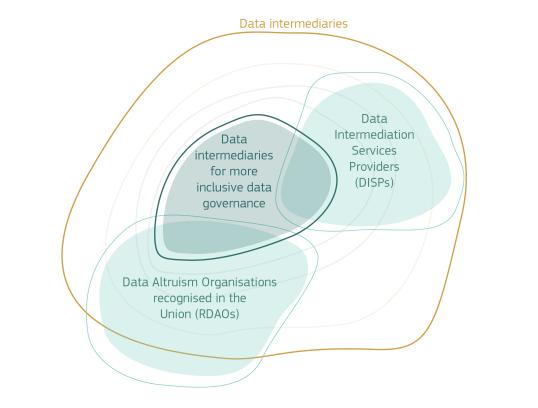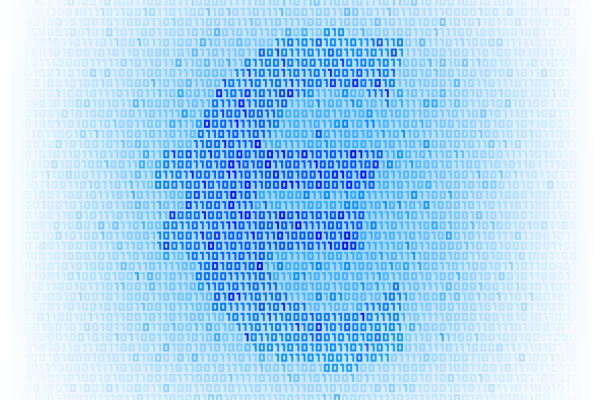
The Data Governance Act (DGA) is a legislative initiative that aims to strengthen mechanisms to increase data availability and overcome technical obstacles to the reuse of data. The ultimate goal of the legislation – applicable as of 24 September 2023 – is to increase trust in data sharing to generate data-driven innovation and social and economic benefits from data for both citizens and businesses.
Under the act, providers of data intermediation services (so-called data intermediaries) are key actors, functioning as trustworthy organisers of data sharing while putting individuals and companies in control of their data. But what is the nature of these entities and what is their role?
The JRC report Mapping the Landscape of data intermediaries provides a timely overview and analysis of key types of data intermediaries, describing their principal features and their business models, as well as the main economic, legal and organisational issues at stake.
A complex landscape
Among some of the key challenges faced by data intermediaries, the study highlights the fragmentation and heterogeneity of the field, as well as the sustainability of their business models.
The mapping exercise identifies and describes six types of data intermediaries that promote more inclusive forms of data governance, and which can foster an alternative and fair approach to data governance and use, especially when comparing them to the practice of Very Large Online Platforms:
- Personal Information Management Systems (PIMS),
- data cooperatives
- data trusts
- data unions
- data marketplaces and
- data sharing pools
The various types of data intermediaries described differ in how they foster inclusive data governance, but also in their objectives and value proposition. They range from business-oriented types to collective and inclusive models that support greater engagement in data governance by communities and by individual subjects.
While certain of these intermediaries aim at facilitating economic transactions between data holders and users, others mainly seek to produce collective benefits or public value.
There are several obstacles faced by data intermediaries:
- There is a need to identify suitable business models that can guarantee economic sustainability. For some business models, complying with the Data Governance Act may represent a challenge in terms of economic sustainability and outcomes.
- Considering the widespread lack of awareness, interest, and expertise in data matters, it is important to stimulate the demand of data intermediation services;
- Comprehending the neutrality requirement set by the Data Governance Act and how it could be implemented. Indeed, the neutrality does not imply that providers of data intermediation services are not allowed to generate profits from their activities; however, to avoid a conflict of interest, revenues should not originate from an analysis of the data they intermediate.
Background
The DGA, a key pillar of the European Strategy for Data, defines a set of rules for providers of data intermediation services (DISPs). By clarifying which types of data intermediation entities are covered by the Data Governance Act, and informed by the notion of inclusive data governance, the study aims to build a bridge between the wider landscape of data intermediaries and those addressed by the EU regulatory framework.
The definition of data intermediaries adopted in the report is broader than the definition contained in the Data Governance Act, as it acknowledges the variety of different models that currently exist:
Data intermediaries allow the establishment of a relationship (commercial or non-commercial) between data subjects and/or data holders, on the one hand, and data users on the other hand.
Via a thorough analysis, the study also contributes to building a shared understanding of the multifaceted landscape of data intermediaries that may promote more inclusive data governance. Moreover, the publication serves as an informative resource for the stakeholders involved in the different activities and roles of data intermediation services.
Related content
Details
- Publication date
- 4 October 2023
- Author
- Joint Research Centre
- JRC portfolios





